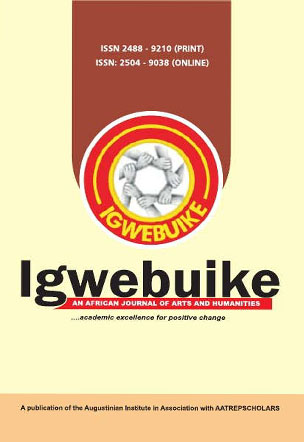
Vol. 10 No. 4, 2024
ABSTRACT
Examination malpractice represents a pervasive challenge that has deeply compromised the integrity of education in Africa, with a particular focus on Nigeria. This persistent issue contributes to the annual emergence of graduates at various educational levels whose certifications are mere facades, misrepresenting the actual knowledge and competencies they possess. Consequently, this leads to a workforce ill-equipped to significantly contribute to the socio-economic development of the continent. Given that truth is a central tenet in African traditional thought systems, often imbued with moral significance, the prevalence of examination malpractice, which is fundamentally rooted in falsehood, starkly contradicts the core values of honesty and truth within African societies. This paper seeks to address the following critical questions: What constitutes examination malpractice? How is truth conceptualized, particularly within the African context? In what ways does examination malpractice contravene the traditional African notion of truth? This study offers a hermeneutic exploration of examination malpractice, the concept of truth, and the traditional African ethos, with a specific emphasis on the Igbo people of Southeastern Nigeria. The findings indicate that the moral dimension inherent in the African understanding of truth renders examination malpractice a profound violation of societal values. The paper concludes by advocating for heightened awareness of the long-term consequences of examination malpractice in Africa and calls for a re-education and reorientation of the populace on the fundamental moral principles that underpin African society
